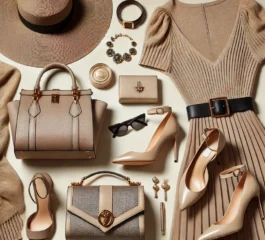Fashion is more than just clothing; it is a powerful tool that shapes our identity, influences our emotions, and impacts how others perceive us. Have you ever noticed how wearing a well-tailored outfit or your favorite pair of shoes instantly boosts your confidence? Studies suggest that fashion plays a crucial role in our psychological well-being, affecting everything from self-esteem to overall mood. In this article, we will explore how fashion choices influence emotions, self-confidence, and mental well-being, providing insights and practical tips for using fashion to feel your best every day.
1. The Psychological Impact of Fashion
Fashion psychology is a growing field that examines the connection between clothing and emotions. What we wear directly influences our mindset and behavior. For example, wearing formal attire can make individuals feel more powerful and authoritative, while casual outfits often evoke a sense of relaxation and comfort.
Research suggests that colors, textures, and styles impact mood in unique ways. Bright colors such as yellow and red are known to boost energy and happiness, while darker shades like black and navy exude elegance and confidence. Fabrics also play a role—soft, comfortable materials can provide a sense of security and calmness. By understanding these psychological effects, individuals can use fashion as a tool to enhance their daily emotions and productivity.
2. Fashion as a Confidence Booster
Confidence often starts with appearance. When people feel good in what they are wearing, they project self-assurance and positivity. Dressing in a way that aligns with personal style and body type enhances self-esteem and fosters a sense of empowerment.




